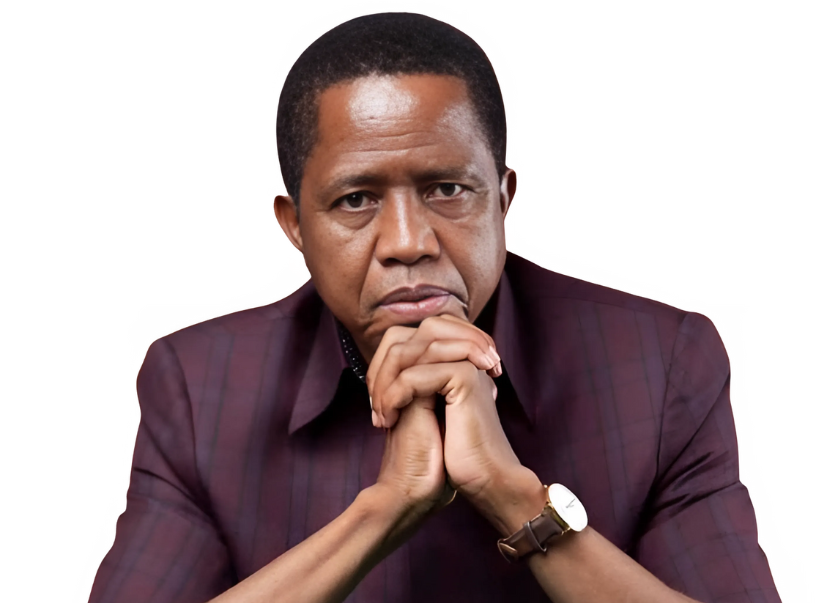PRETORIA COURT LIKELY TO RULE IN FAVOUR OF LUNGU FAMILY IN BURIAL DISPUTE
By Brian Matambo, reporting from Sandton, South Africa
PRETORIA, SOUTH AFRICA. As the Pretoria High Court prepares to deliver a landmark ruling on the burial of Zambia’s late President Edgar Chagwa Lungu, legal precedent and constitutional principles strongly suggest the court may side with the family.
The hearing on Monday, August 4, lasted nearly three hours and laid bare the stark contrast between two opposing claims. On one side, the Zambian government insisted on a state-led funeral, invoking national dignity and presidential protocol. On the other, the Lungu family defended their right to bury their relative privately and on their terms, rejecting any involvement by President Hakainde Hichilema.
With no signed agreement, no valid reinstatement of state benefits, and the body still within South African jurisdiction, the court is now expected to favor the family’s position.
THE LEGAL TERRAIN: WHO CONTROLS A FUNERAL IN EXILE?
This is not the first time a South African court has faced a burial conflict involving a prominent figure. In 2013, the Mandela v Mandela case saw the court uphold the broader family’s rights in a dispute over the relocation of Nelson Mandela’s children’s remains. The ruling emphasized family consensus, dignity, and cultural sensitivity over individual ambition or state symbolism.
A decade later, similar principles apply.
In Monday’s hearing, family counsel Casper Welgemoed told the court there was no enforceable agreement between the Zambian state and the family. He cited conflicting affidavits and contradictory versions of a draft program as proof that no meeting of the minds had occurred. “If there is no consensus, there is no agreement,” he argued.
He also pointed to Zambia’s own law, the Benefits of Former Presidents Act, which revokes benefits if a former president returns to active politics. Edgar Lungu did exactly that in 2023. Welgemoed stated clearly that the Act does not contain any provision for reinstating benefits after death. “There is no statute that magically restores state privileges posthumously,” he said.
The Zambian state had claimed otherwise, arguing that Lungu remained a former head of state deserving of full national honors. Their legal team insisted that death nullifies political disqualification and reinstates entitlement to state support, including a state-funded funeral.
However, this position is not supported by the Act itself, and the absence of a will or written instruction delegating burial rights to the state weakens their case further.
CONSTITUTIONAL RIGHTS AND SOUTH AFRICAN JURISDICTION
Because the body remains in South Africa, South African law governs the handling of the deceased. The Constitution gives strong protection to individual and cultural rights, even in death.
Relevant protections include:
- Section 10, which ensures dignity
- Section 12(2), which upholds bodily autonomy
- Section 15, which protects freedom of belief
- Sections 30 and 31, which preserve cultural practices and family authority
The family maintains that Edgar Lungu explicitly stated he did not want President Hichilema involved in his funeral. This is documented in Esther Lungu’s affidavit under Paragraph 7.6. The state offered no evidence to contradict that claim. No audio, no written instruction, and no uncontested agreement.
In addition, Welgemoed reminded the court that legal precedent and basic decency favor the next of kin in burial decisions, unless a will or court order dictates otherwise.
A JUDICIOUS BALANCING ACT
Legal observers believe the court is likely to hand down a narrowly focused judgment that avoids politicizing the issue.
The expected ruling would:
- Affirm the family’s right to decide the funeral arrangements
- Prohibit any forced involvement of President Hichilema
- Permit repatriation of the body to Zambia, only under terms acceptable to the family
- Possibly require both parties to bear their own legal costs
Such a ruling would align with South Africa’s constitutional values and its judicial history of siding with family control in posthumous matters.
LEGACY IN LIMBO
Beyond the legal arguments, the case highlights a broader struggle over Edgar Lungu’s legacy. For his supporters, he was a patriotic leader forced into exile. For his critics, he was a divisive figure who returned to politics in defiance of legal norms. His death, and the unresolved funeral, have only deepened national divisions.
The family insists that he made peace with dying in South Africa and that any attempt by the Zambian government to politicize his funeral goes against his final wishes. They argue that the funeral should reflect his dignity, not serve as a platform for a president he did not trust.
For now, Edgar Lungu lies unburied sixty days after his death. The court in Pretoria holds the key to whether that delay ends with dignity or political discord.
The ruling is expected on Tuesday or by Friday at the latest.
Brian Matambo
Sandton, South Africa

